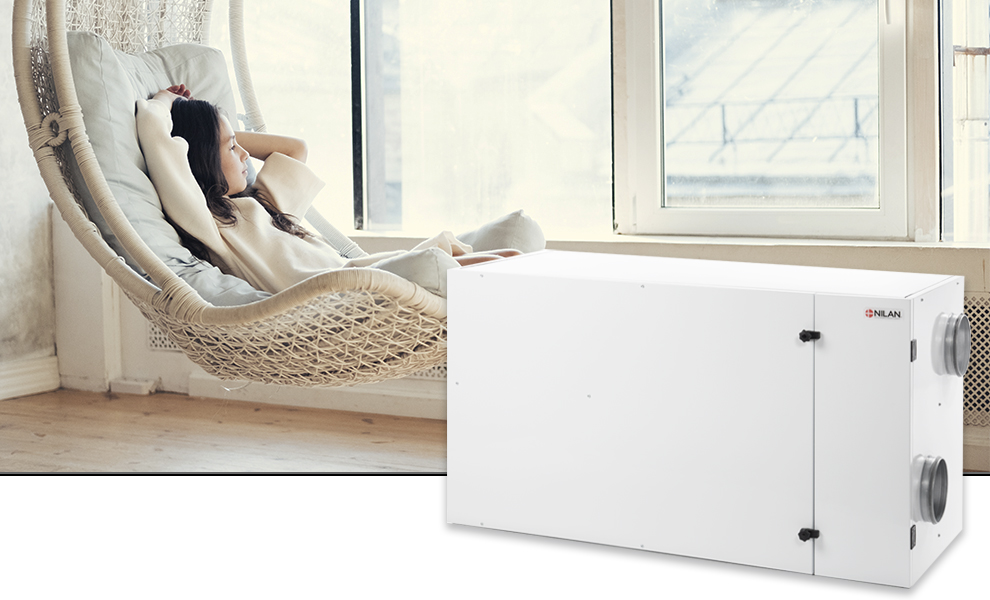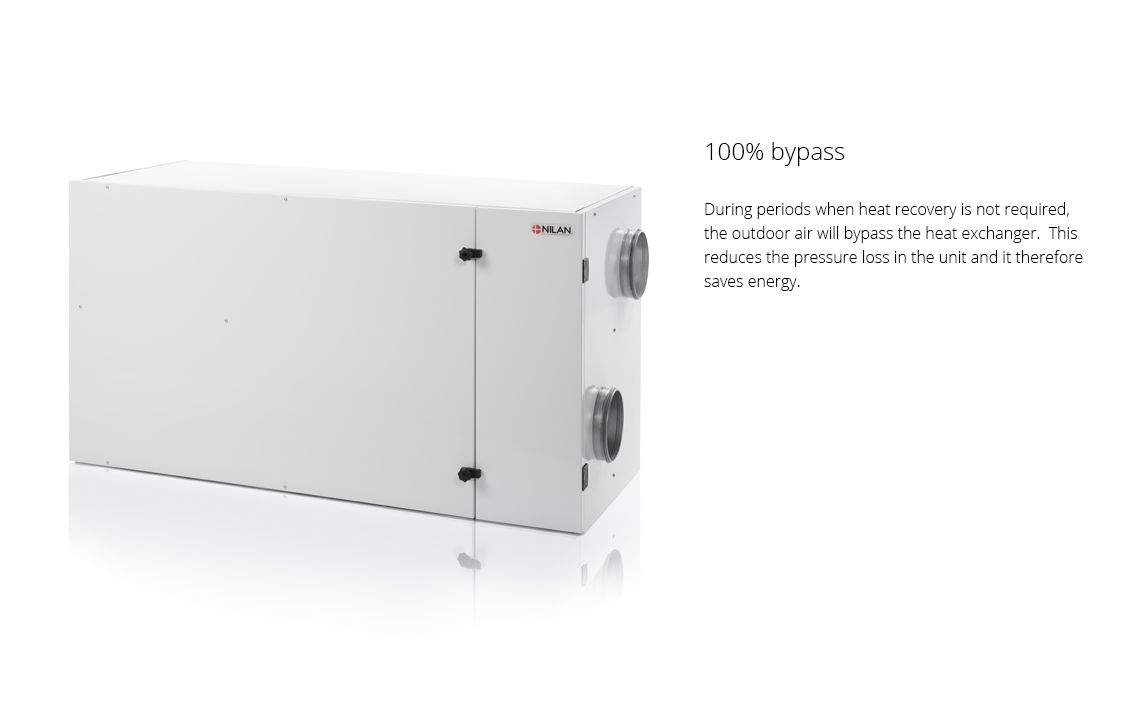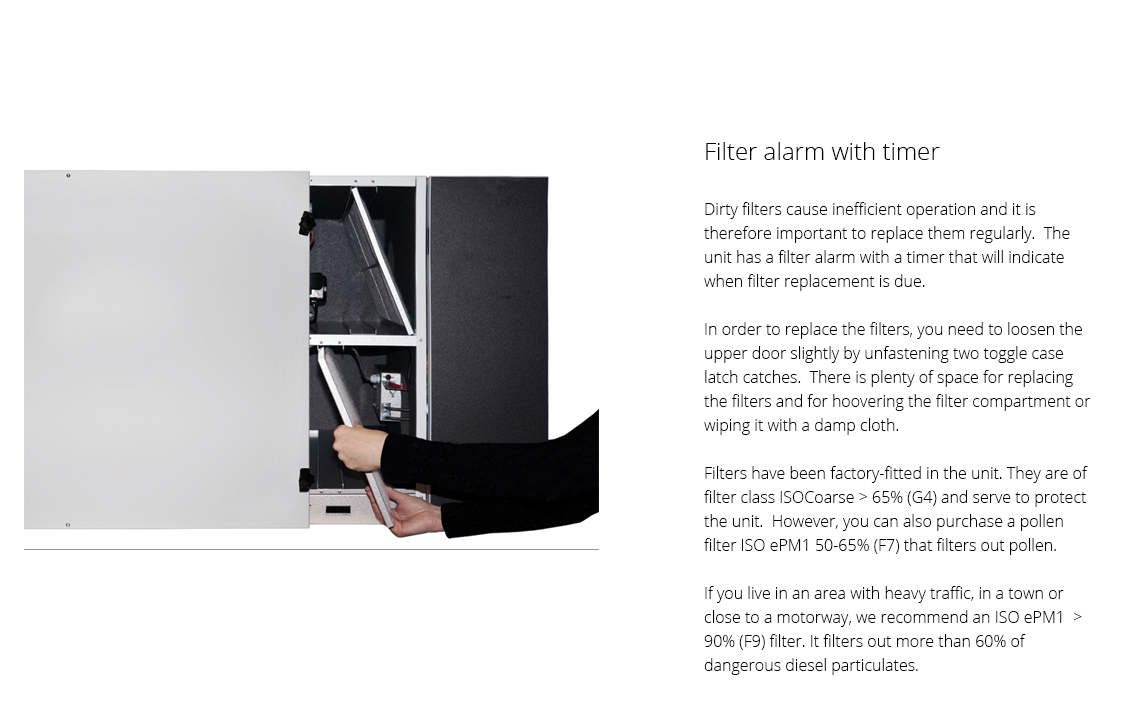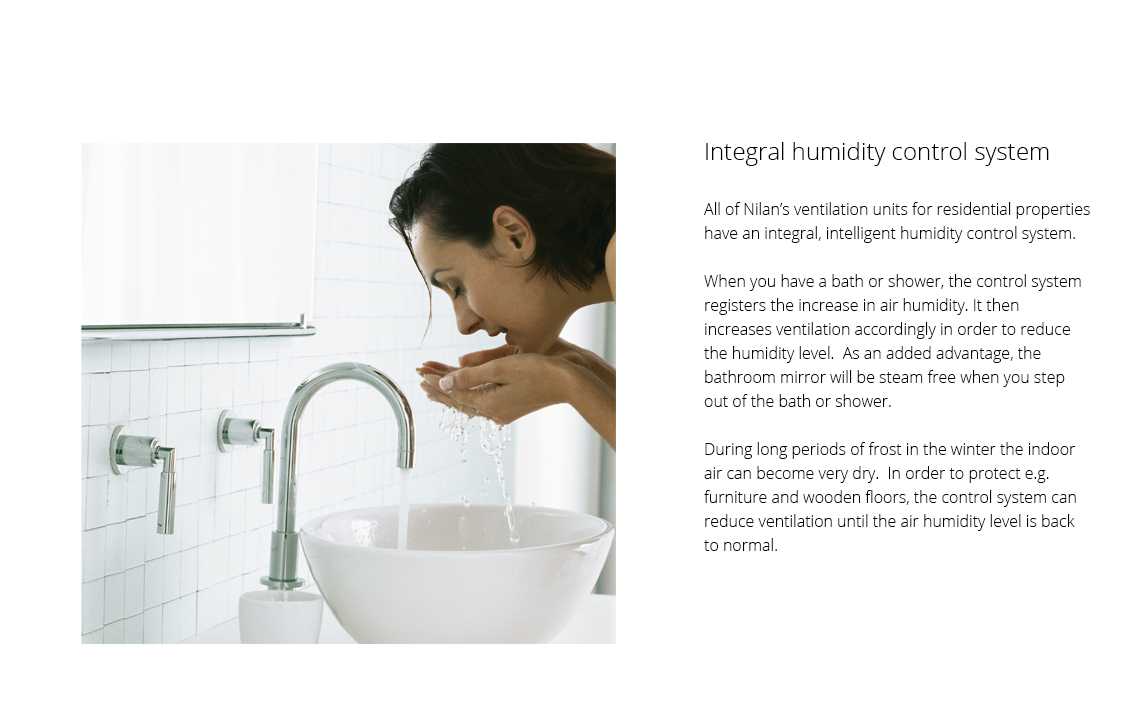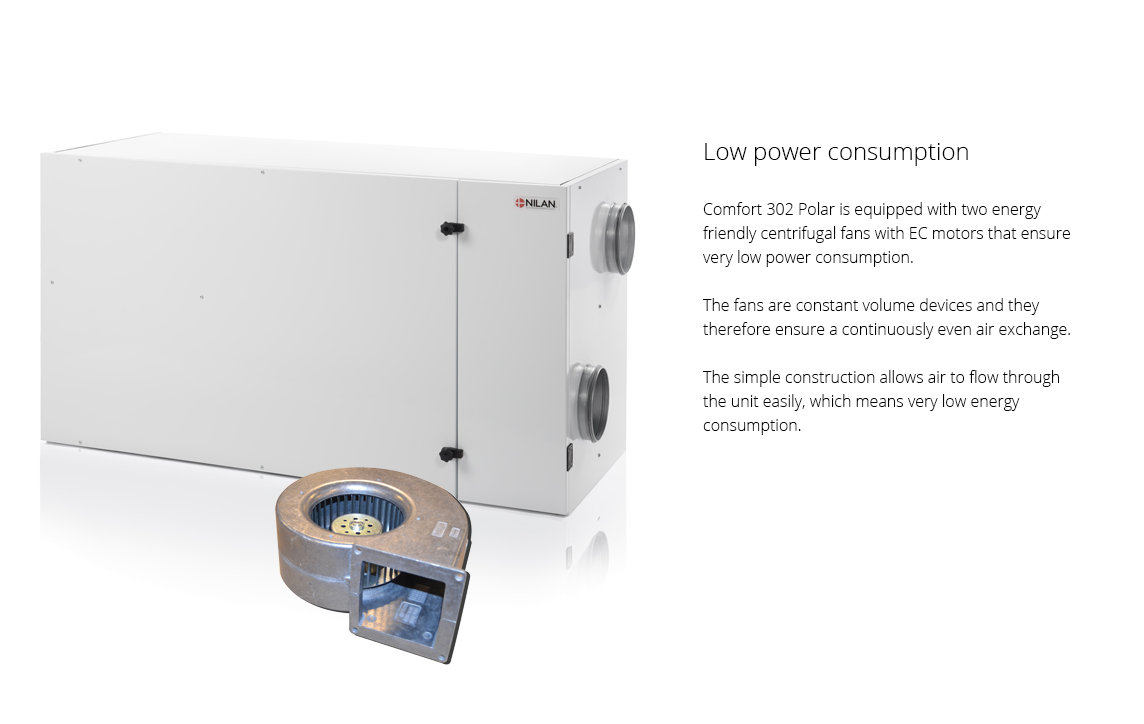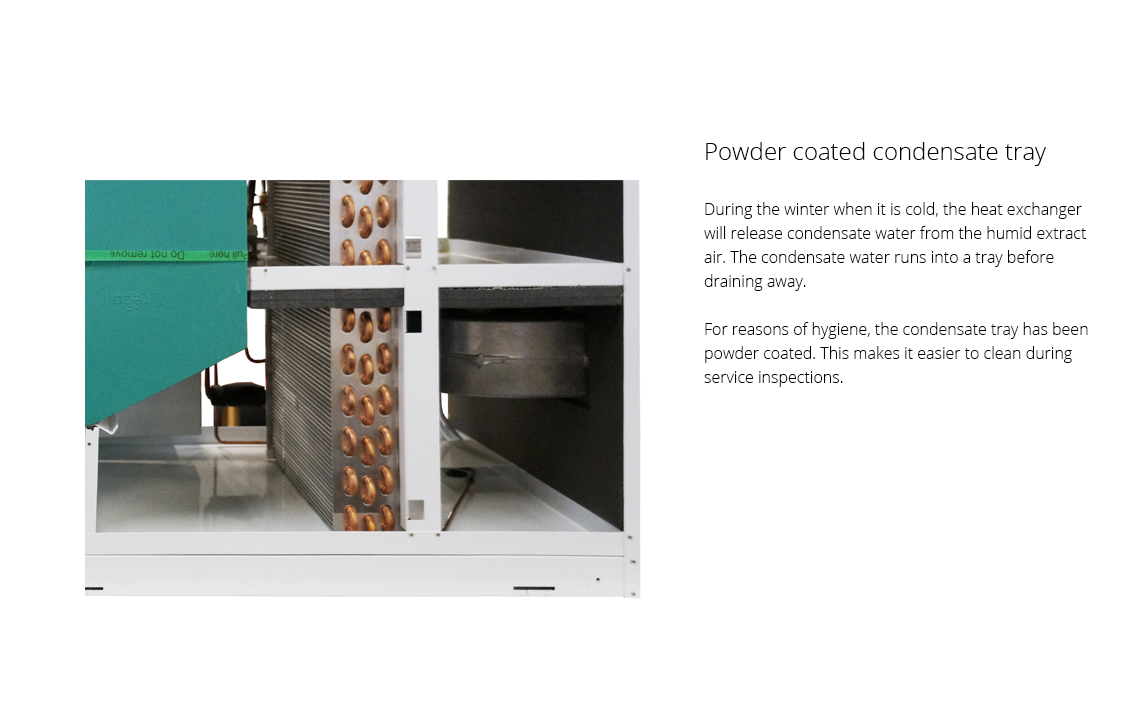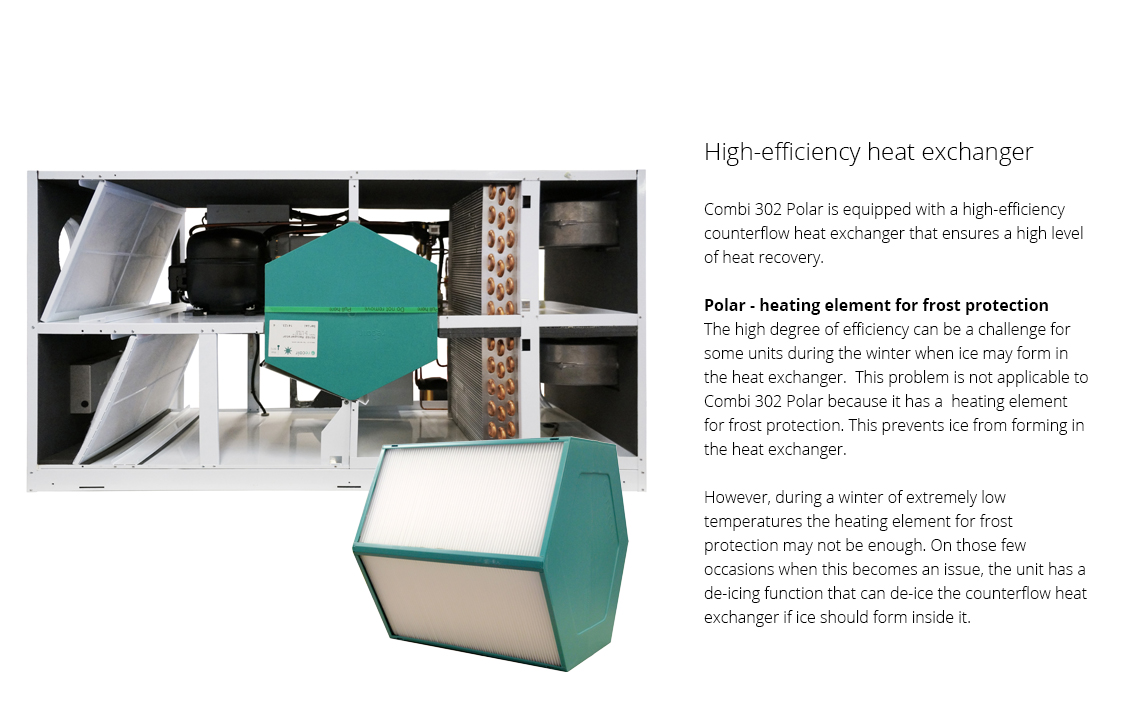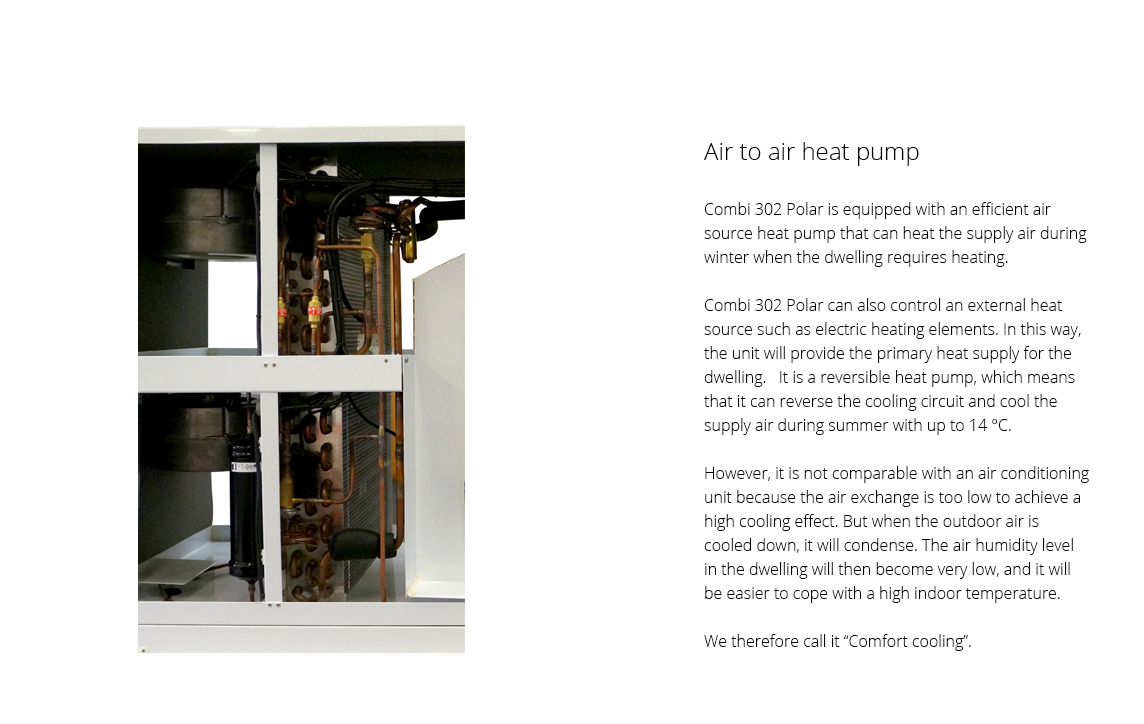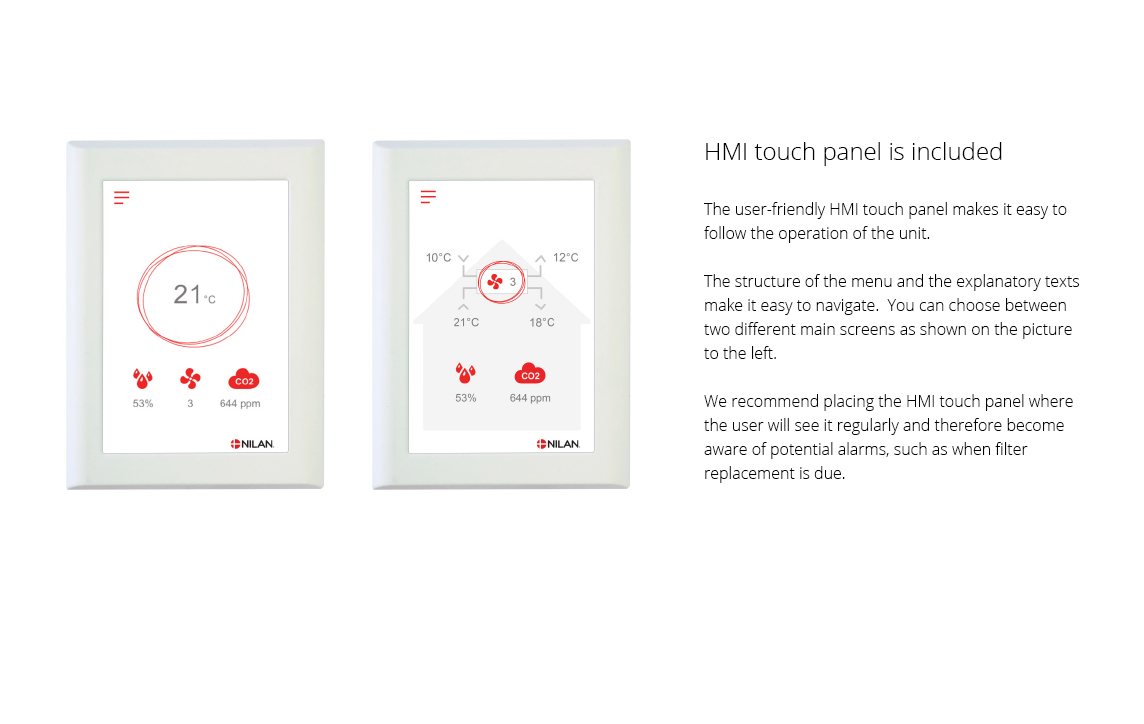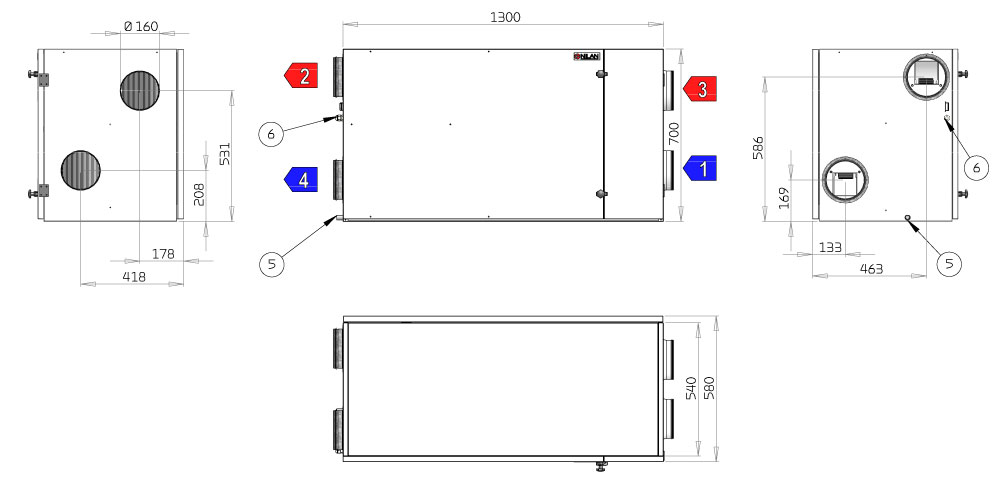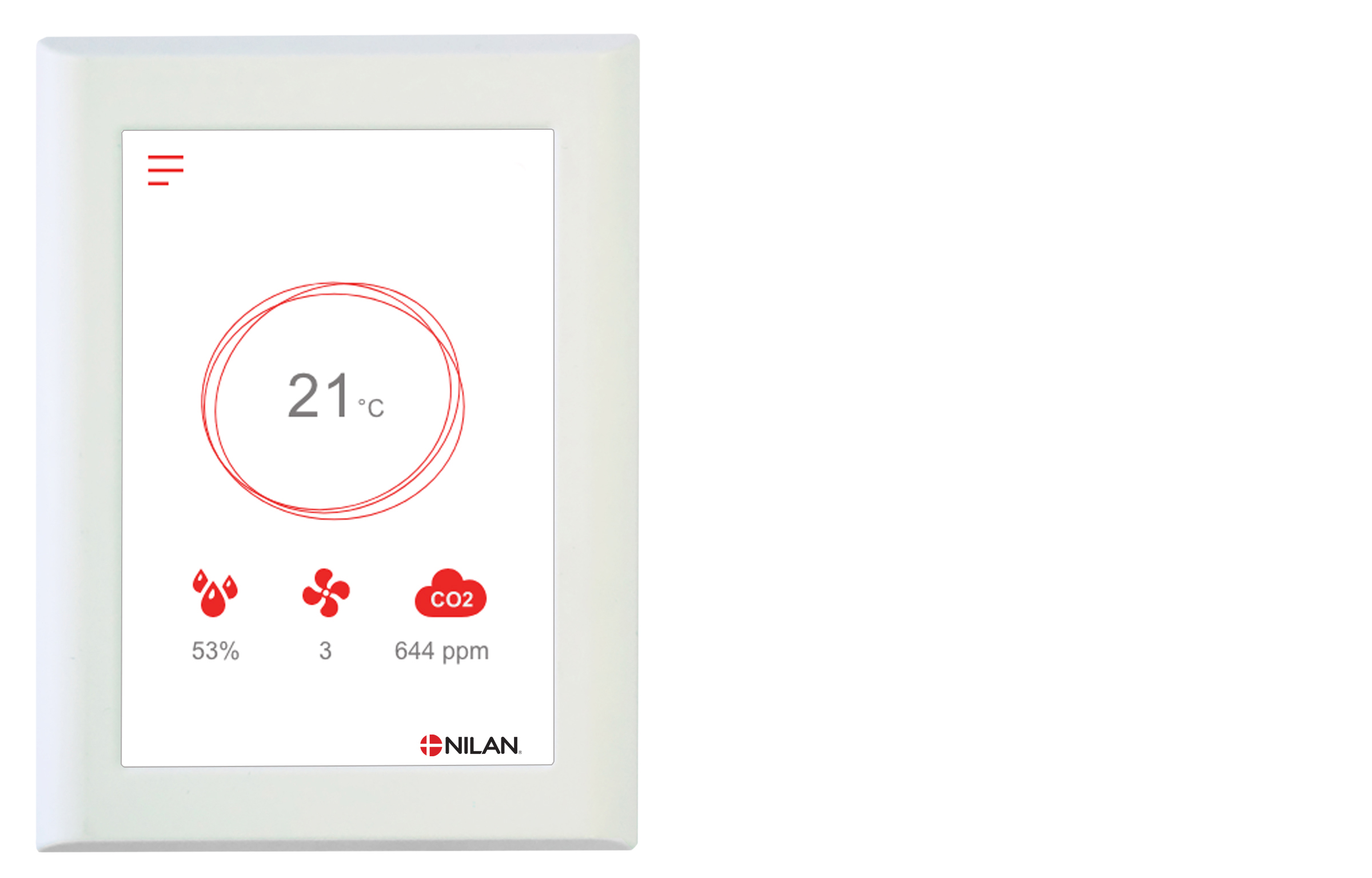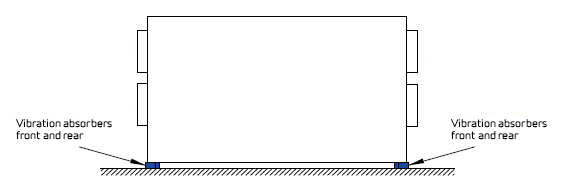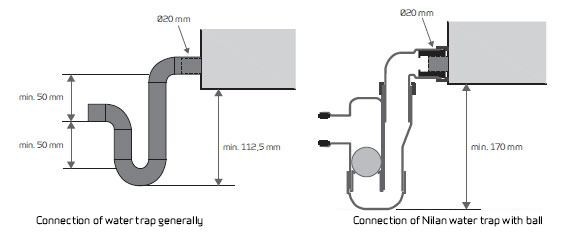Combi 302 Polar
Combi 302 Polar is a ventilation unit with heat recovery that is typically used in single-family dwellings.
Most of the time, the heat recovery process occurs via a high-efficiency counterflow heat exchanger that achieves 85 - 95% heat recovery. The unit is also equipped with an air to air heat pump that can heat the supply air when the dwelling requires heating. In some low energy houses Combi 302 Polar is the primary heat source, but it can also control external, supplementary heat sources such as electric radiators.
The heat pump has a reversible cooling circuit and it can therefore also cool the supply air with up to 14 ºC when necessary during the summer. Combi 302 Polar is not comparable with an air conditioner. The cooling effect of the unit is not as substantial, which is due to its low level of air exchange of approx. 0.5 times/hour. But when the outdoor air is cooled down, it will condense, and the cooler air that is led into the dwelling is therefore less humid. Low air humidity makes it easier to cope with a high indoor temperature. We therefore call it “Comfort cooling”.
Combi 302 Polar is often installed in an unused loft so it does not take up space in the utility room. Placing it in the loft also means that it is easy to block potential noise from the unit and prevent it from entering the dwelling.
Airflow (see planning data for SEL/SFP values)
Min : 50 m3/hMax : 375 m3/h
Nilan App - Control the ventilation and heat pump directly from the mobile phone
|
Nilan has developed an App with great features where the user can control the ventilation and heat pump directly from the mobile phone. The App is intuitive, easy and safe to use, and allows the user to e.g. set the room temperature. More ventilation units can be connected using the same App to control the indoor climate in e.g. both the dwelling and the holiday home. More users can be connected the same App. The Combi 302 Polar comes as standard with the Nilan gateway. Get more information on the Nilan App
|
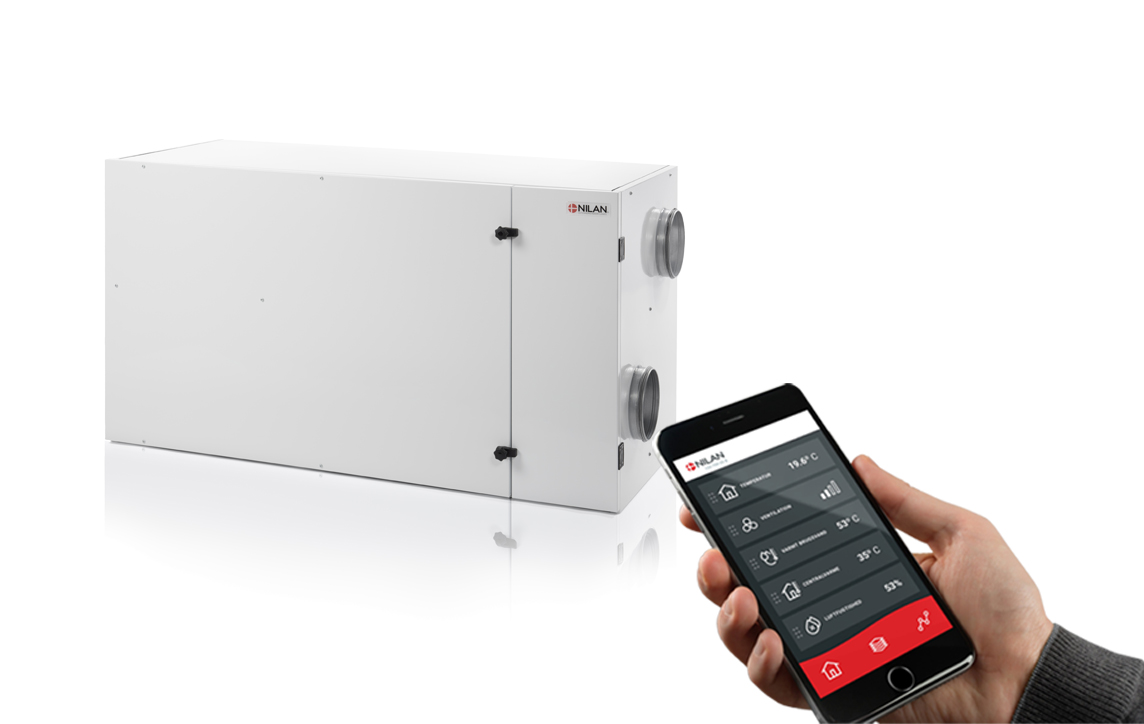 |
*1 - At ± 250 Pa and 300 m3/h according to EN 13141-7. |
CapacityCapacity of standard unit as a function of qv and Pt, ext. SEL values according to EN 13141-7 are for standard units with ISO 16890 Coarse 75% (G4) filters and without heating element. SEL values comprise the unit´s total power comsumption incl. control. Conversion factor: J/m3 : 3600 = W/m3/h. Attention! The SEL values are measured and stated as a total value for both fans. |
.jpg) |
Temperature efficiencyTemperature efficiency for units with counterflow heat exchanger according to EN308 (dry). Temperature efficiency EN308: ɳt = (tsupply air-tfresh air)/(textract air-tfresh air) |
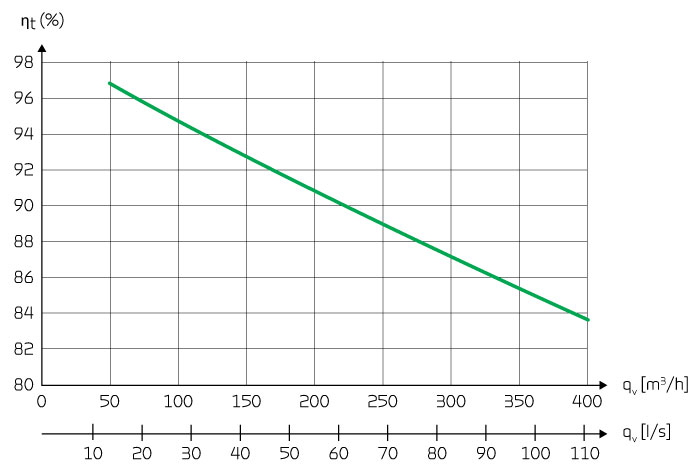 |
COP (heating)Heat effect factor COP [-] supply air as function of outdoor temperature [°C] and volume flow qv [m3/h]. According to EN14511, extract air = 21°C. |
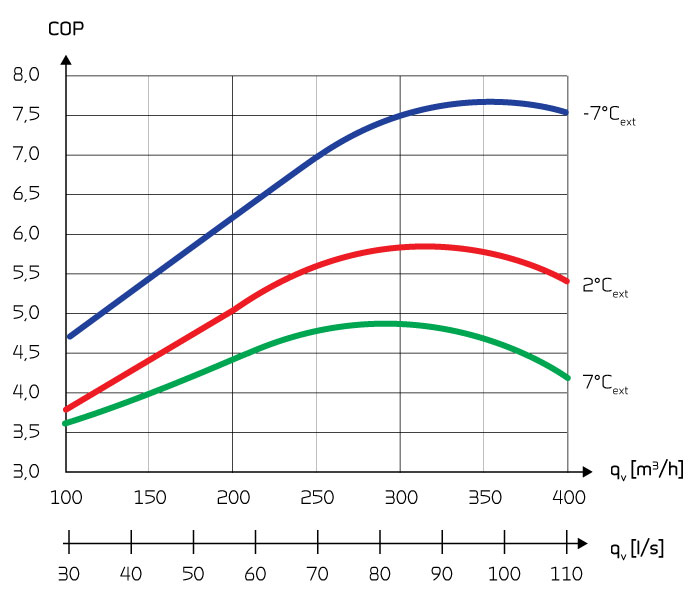 |
Heat effect (supply air)Heat effect Qc [W] as a function of qv [m3/h] and fresh air temperature [°C]. According to EN 14511, extract air = 21 °C The fixed curves indicate the total heat recovery at different outdoor temperatures, where the dotted line indicates the heat supplied to the supply air (heat output). The difference between the fixed curves and the dashed curves corresponds to the ventilation loss covered by the heat pump and the heat exchanger. |
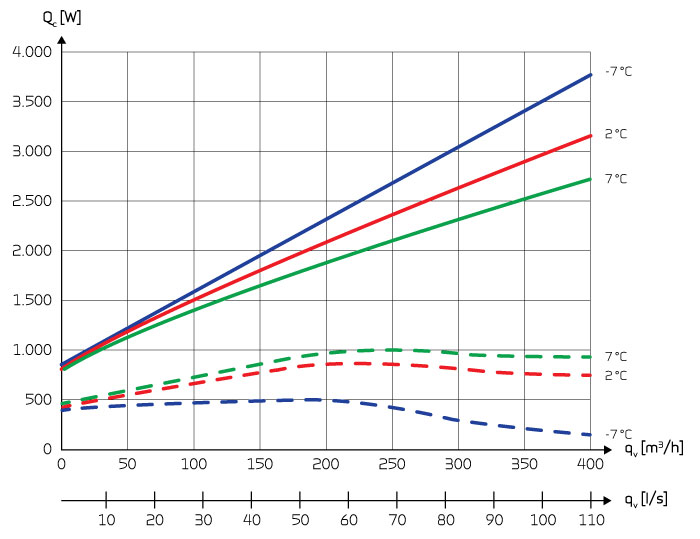 |
Supply air temperature (heating)Supply air temperature [°C] as a function of fresh air temperature [°C] and volume flow qv [m3/h] balanced flow. Extract air temperature = 21 [°C], 45 RH [%] |
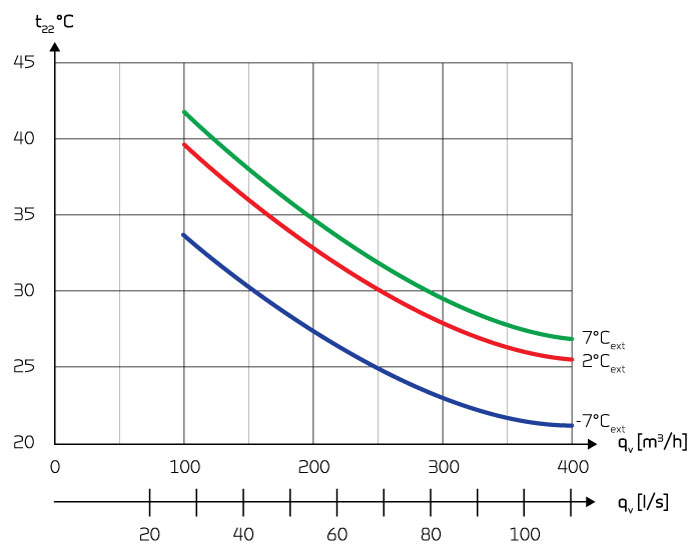 |
Supply air temperature (cooling)Supply air temperature [°C] as a function of fresh air temperature [°C] and volume flow qv [m3/h] balanced flow. Extract air temperature = 24°C |
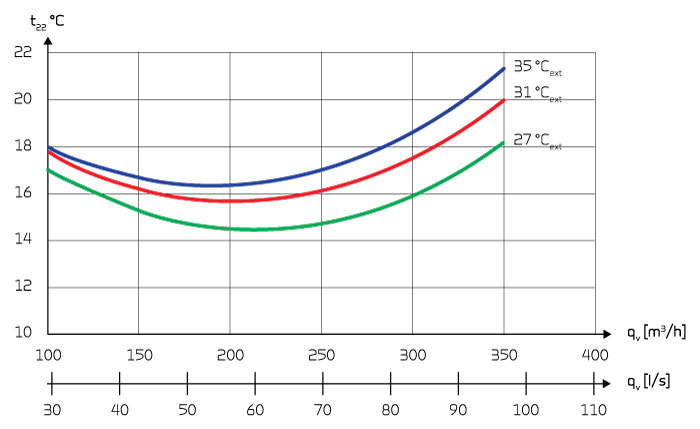 |
Sound dataSound data for qV = 210 m3/h and Pt, ext = 100 Pa according to EN 9614-2 for surfaces and EN 5136 for ducts. Sound output level LWA drops with falling air volume and falling back pressure. Sound output level LpA at a given distance will depend on acoustic conditions in the place of installation. |
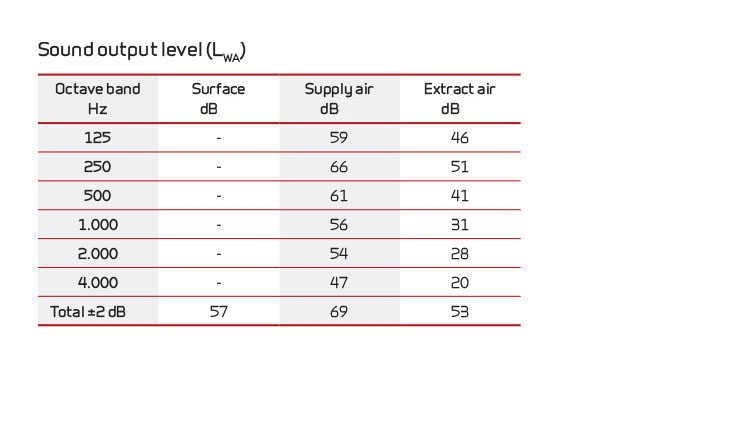 |
Dimensional drawing Combi 302 Polar:
All dimensions are in mm. Connections
|
The CTS602 control system is an advanced control system with many settings options. The control system is supplied with factory default settings that can be adapted to the operational requirements in order to achieve best possible operation and utilisation of the unit. The HMI Touch panel provides an overview of the current operation of the unit, and the structure of its menu makes it easy to navigate for both user and installer. There is an option for selecting between 2 front page images for the main screen. External communication
You can find further information about all the functions in the Software and Installation instructions for the unit.
|
ATTENTION! When positioning the unit, you should always consider future services and maintenance. It is recommended that you leave a minimum of 60 cm of clear space in front of the unit. It must be easy to replace filters and it must be possible to replace, for instance, fans and other components. ATTENTION! The unit must be level to enable proper drainage from the condensate tray.
The unit makes little noise and produces only weak vibrations, but you should still take into account potential vibrations that can spread from the unit to individual building components. In order to separate the unit from its foundation, it is therefore recommended that you install vibration absorbers under the unit. There should be approx. 10 mm distance to other building components and to permanent fixtures. Condensate drainATTENTION! You MUST install a water trap in connection with the condensate drain to ensure that condensate water can drain away. If you set up the unit outside the climate screen, it is important to use a heating cable to prevent the condensate drain from icing up. Frost protection of the unit is the installer's responsibility.
|

